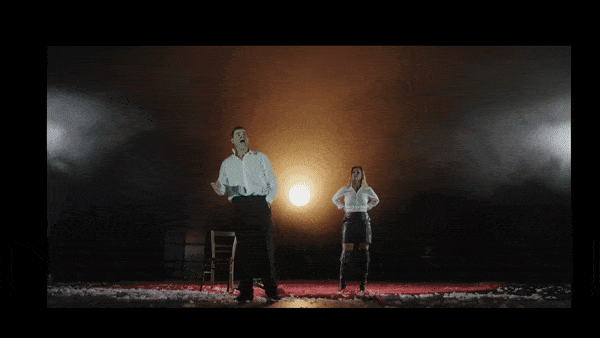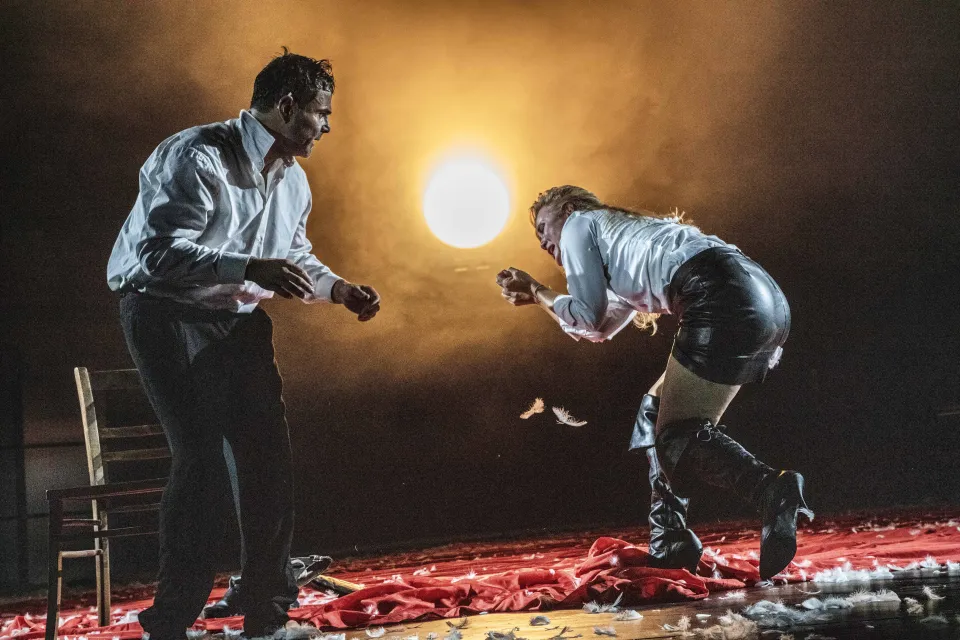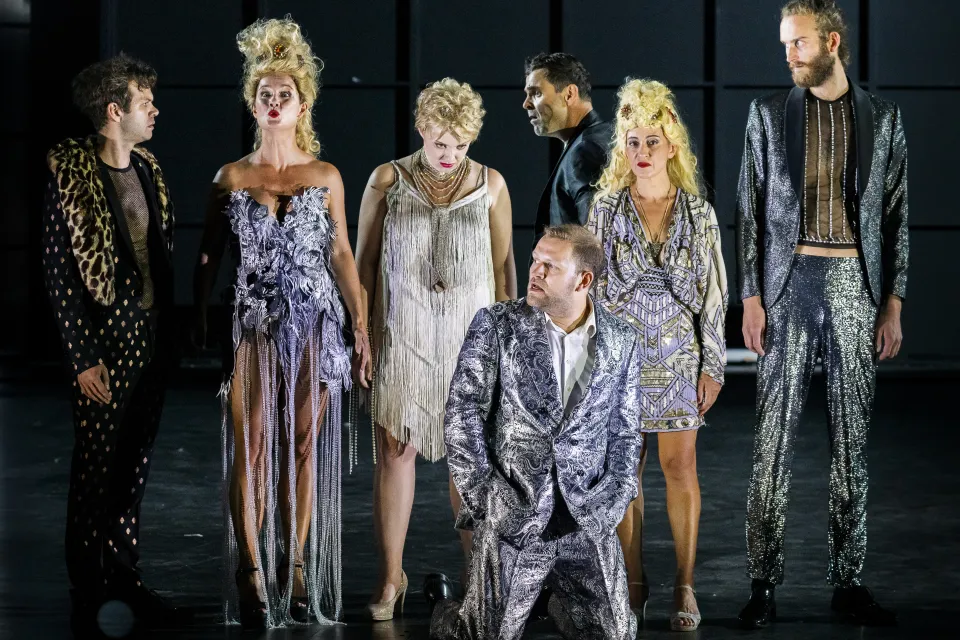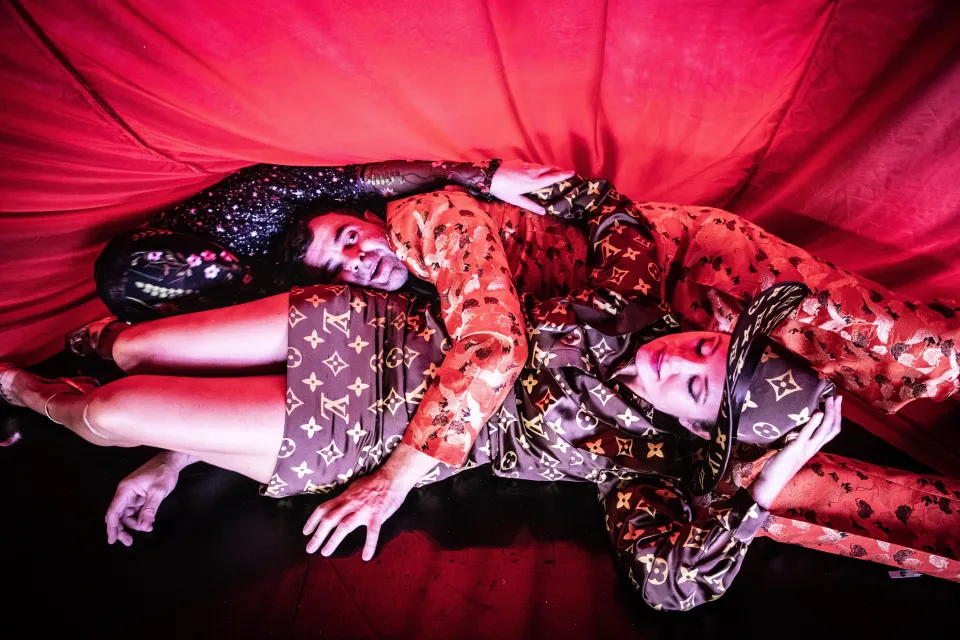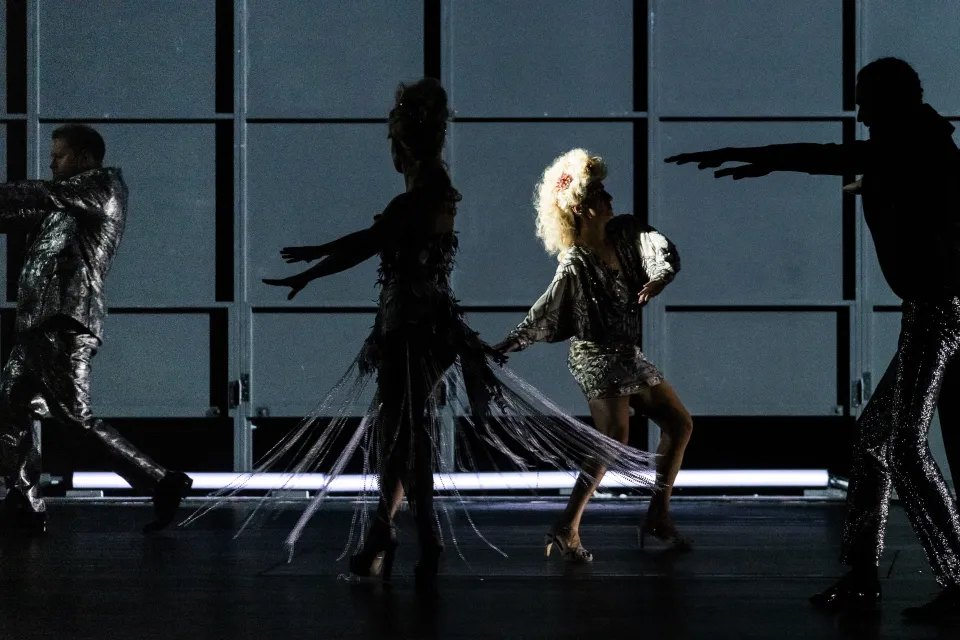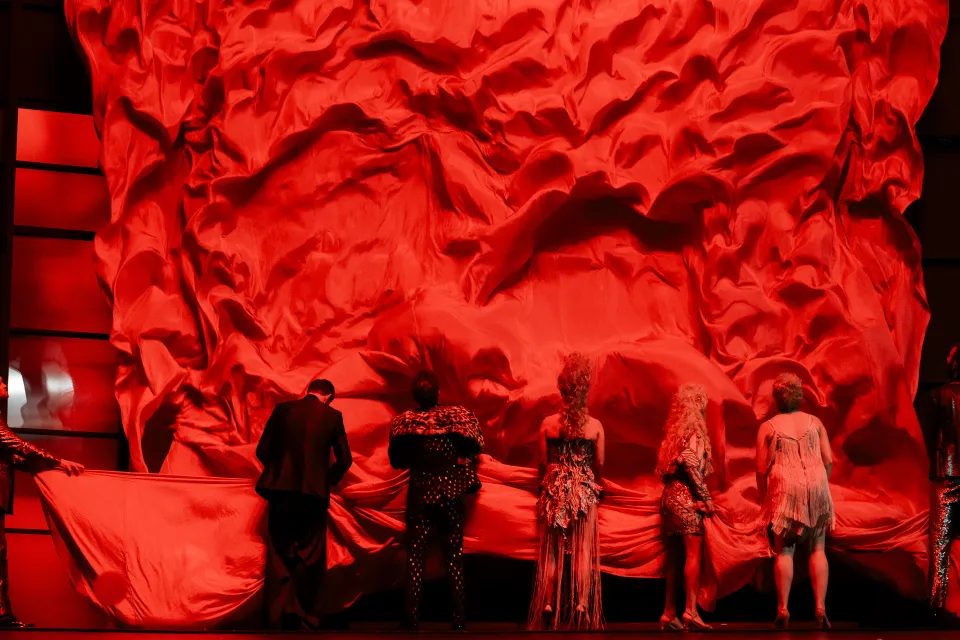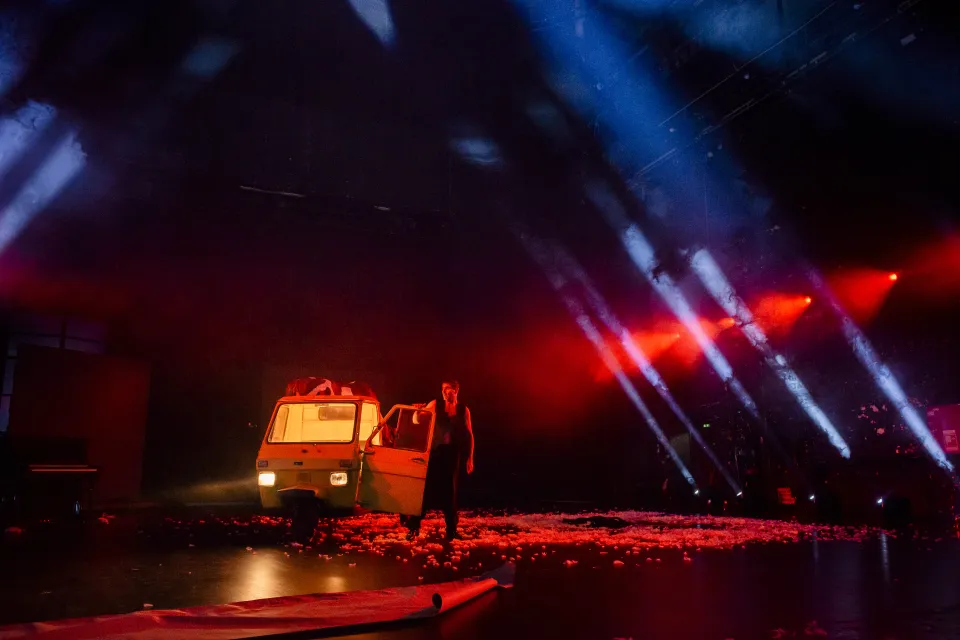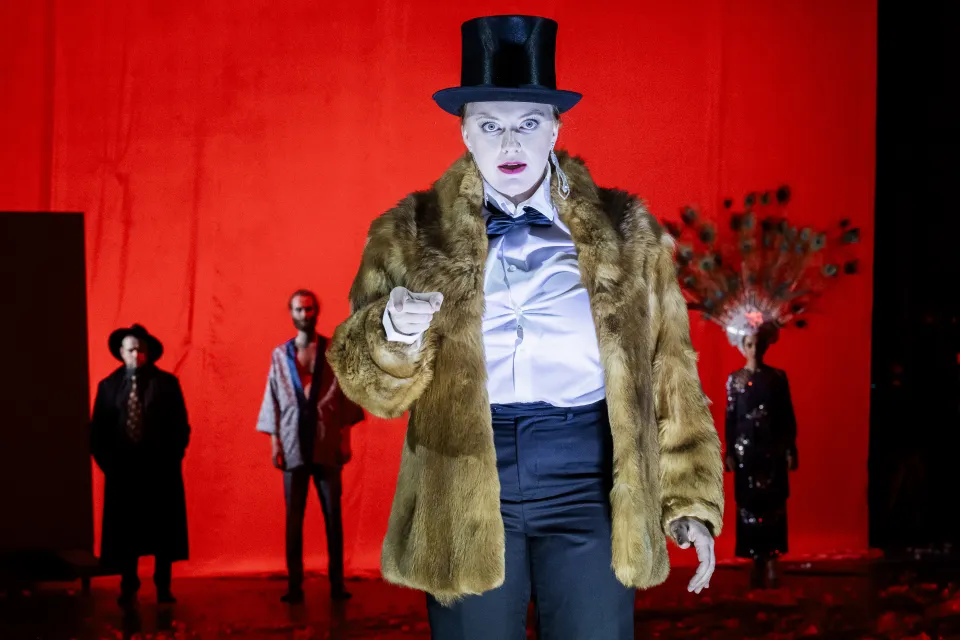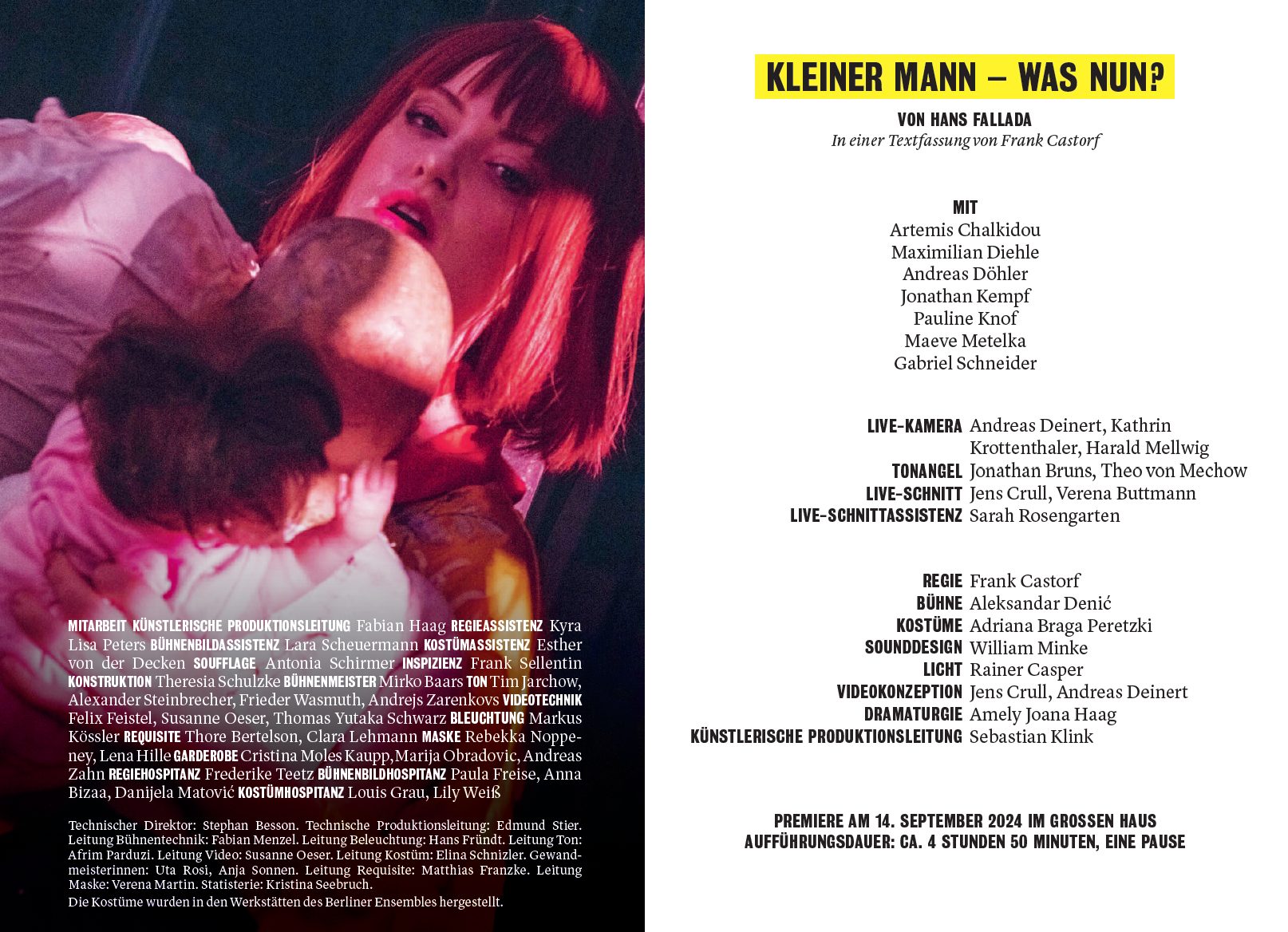Little Man, What Now? _ Kleiner Mann - was nun?
Pinneberg and Lämmchen are young parents who cling to their love and their faith in civic morality – despite their poverty, unemployment and social hardships. Their struggle for a last shred of dignity ends in the Moloch of Berlin. Hans Fallada wrote his internationally acclaimed novel in 1932, a time of extreme economic and political tension in Germany, and only a censored version could be published. The author’s summary of his book: “Marriage and woes of Johannes Pinneberg, employee, loses his job, gets a new job and becomes permanently unemployed. One among six millions, a nothing, and what this nothing feels, thinks and experiences.” The question “What now?” from the novel’s title “Little Man, What Now?” was historically answered by National Socialists’ seizure of power. Fallada’s answer to the question of how much impact humaneness can have in a mass society is a utopian moment.
FRANK CASTORF has adapted the original version of the novel for Berliner Ensemble and relates it to autofictional texts that Fallada mostly wrote in prison, as, for instance, “Die Kuh, der Schuh, dann du”.
Project done in collaboration with: Berliner Ensamble Theatre
